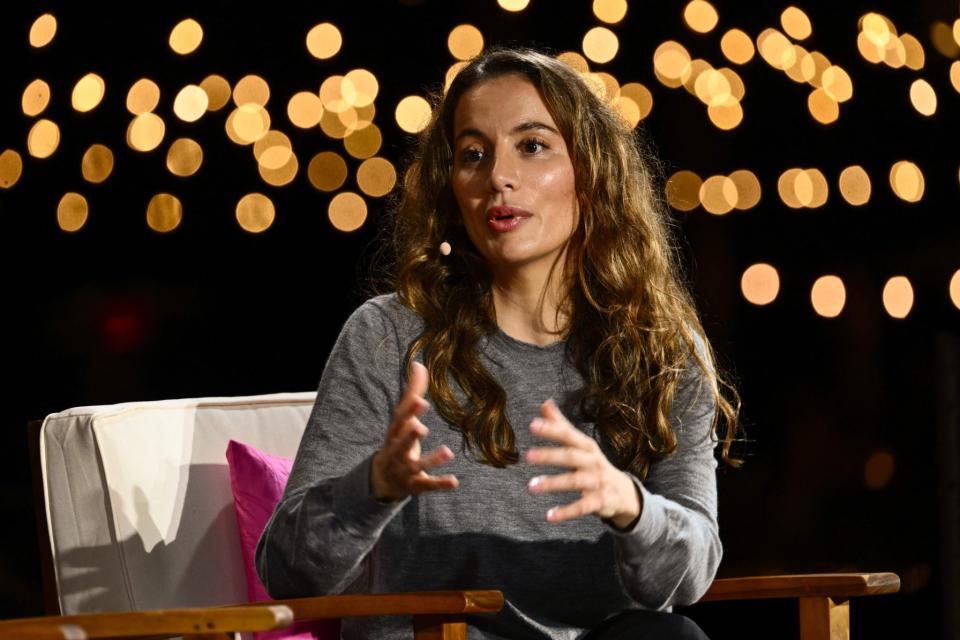OpenAI’s Mira Murati fires back at Elon Musk for describing her company’s new partnership with Apple as ‘creepy spyware’

A top OpenAI executive defended her company against Elon Musk, a day after the billionaire CEO described the integration of OpenAI's chatbot technology into Apple iPhones as “creepy spyware.”
"That’s his opinion. Obviously I don’t think so," Mira Murati, chief technology officer at OpenAI, said on stage at Fortune's MPW dinner in San Francisco on Tuesday, during a wide-ranging interview that also touched on the company's executive upheaval last year and a potential initial public offering. "We care deeply about the privacy of our users and the safety of our products."
Under a high-profile deal announced at Apple's annual developer conference on Monday, Apple will give users of its devices the option of fielding OpenAI's AI technology for complex queries that Apple's in-house AI would have trouble providing an accurate answer for. OpenAI's technology will be integrated with Apple's iOS operating system so that it can be used with a number of Apple services.
In a nod to privacy, Apple has said that it won't share user its data with OpenAI and that OpenAI will not train its models with Apple user data.
Musk, the Tesla CEO who co-founded OpenAI and then later become one of its biggest critics after a power struggle, denounced the alliance after it was announced at Apple's WWDC conference earlier this week to great fanfare. He said he would ban employees at his companies from using any Apple devices, such as iPhones and Macs, that that had the technology incorporated into their operating systems.
"Apple has no clue what’s actually going on once they hand your data over to OpenAI. They’re selling you down the river," Musk wrote on X, formerly Twitter.
In her answers on Tuesday, Murati hammered home the idea that OpenAI is intensely focused on user privacy and security. "We’re trying to be as transparent as possible with the public," she said, adding that "the biggest risk is that stakeholders misunderstand the technology."
On Monday, OpenAI added to its executive ranks by naming Sarah Friar, former CEO of neighborhood social network Nextdoor, as its chief financial officer. It also appointed Kevin Weil, previously a product development leader at Twitter and Instagram, as its new chief product officer.
Many in Silicon Valley speculated that the hirings were in preparation for a future initial public offering. However, Murati sidestepped the question by saying, "What it really means is that we are in this next phase in the company," and that the new executives are bringing new skills and leadership.
Murati also addressed OpenAI's upheaval in November, when its board briefly ousted CEO Sam Altman for allegedly not being "candid." She complained that OpenAI, which is controlled by non-profit board, lacked enough oversight.
"As we discovered in November with the non-profit board structure that we had, the non-profit board structure didn't have to accountability to anybody but themselves," Murati said, adding that OpenAI now has a largely new board made up of more experienced directors who have long histories at large companies and at non-profits.
This story was originally featured on Fortune.com

 Yahoo Finance
Yahoo Finance 